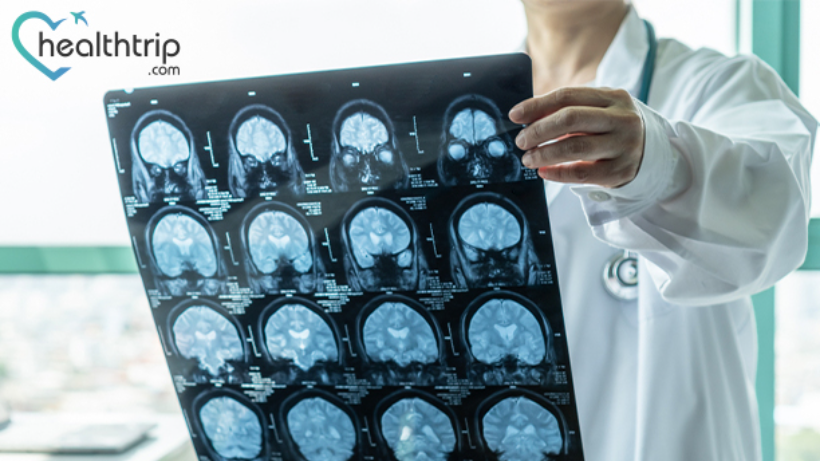
Getting Familiar with the Side Effects of Cochlear Implant Surgery
20 Jul, 2022
 Healthtrip Team
Healthtrip TeamOverview
Patients who undergo medical procedures are frequently at risk of developing side effects. And those who are suffering from hearing issues may need to undergo cochlear implant surgery at one point in their lives. With increasing hearing problems, in recent years, the cochlear implant has become a routine surgical procedure. However, you should be aware of the side effects and complications related to the same. Our expert otologists and ENT surgeons have helped us with the same.
Understanding the procedure: Cochlear implant surgery
A cochlear implant is a small electronic device that stimulates the cochlear nerve (the nerve for hearing) electrically. The implant consists of both internal and external components. The external portion is located behind the ear. It captures sounds using a microphone. After processing the sound, it transmits it to an internal component of the implant.
Transform Your Beauty, Boost Your Confidence
Find the right cosmetic procedure for your needs.

We specialize in a wide range of cosmetic procedures

During an outpatient procedure, the internal part is implanted beneath the skin behind the ear. An extremely thin wire and tiny electrodes are used to access the cochlea, which is a component of the inner ear. The cochlear nerve receives signals from the wire and sends them to the brain, where they are processed to produce the sensation of hearing.
Also, Read - Cochlear Implant Surgery Cost in India
Why do you need to undergo such a procedure?
People who are candidates for cochlear implant surgery include those who:
- Are suffering from hearing loss and are unable to benefit from hearing aids
- Hearing in both ears, but with limited clarity
- Even when wearing hearing aids, half or more of spoken words are missed without lip reading.
- Or for the people for whom, despite wearing hearing aids, they rely heavily on lip reading.
A partially inserted cochlear implant is used to preserve hearing in cases of more moderate hearing loss, allowing both a hearing aid and the cochlear implant to be used in the same ear at the same time. However, in more severe cases of hearing loss, a fully inserted cochlear implant is required to reap the full benefits of electrical hearing.
Also, Read - Cochlear Implant Treatment Procedure
Most popular procedures in India
Atrial septal defect
Upto 80% off
90% Rated
Satisfactory

Coronary Angiogram a
Upto 80% off
90% Rated
Satisfactory

Coronary Angiogram C
Upto 80% off
90% Rated
Satisfactory

Liver Transplant
Upto 80% off
90% Rated
Satisfactory

Total Hip Replacemen
Upto 80% off
90% Rated
Satisfactory

What are the complications associated with cochlear implant surgery?
- Injuries to the facial nerve — this nerve travels through the middle ear and provides movement to the muscles of the face. It is located near where the surgeon needs to place the implant and may be injured during the procedure. An injury can result in temporary or permanent weakness or complete paralysis on the same side of the face where the implant is located.
- Meningitis is an infection of the lining of the brain's surface. People with abnormally formed inner ear structures appear to be more vulnerable to this uncommon but serious complication.
- Cerebrospinal fluid leakage—the brain is surrounded by fluid, which may leak from a hole created in the inner ear or elsewhere as a result of the surgical procedure.
- Perilymph fluid leak—fluid is present in the inner ear or cochlea. This fluid may leak through the hole made to insert the implant.
- Infection of the wound on the skin
- Dizziness or vertigo attacks
- Tinnitus is a ringing or buzzing sensation in the ear.
- Disturbances in taste—the nerve that gives taste sensation to the tongue also runs through the middle ear and may be injured during surgery.
- Numbness in the ear.
Other unanticipated complications with long-term implantation may occur, which might not be predicted earlier. However, other than these above-mentioned complications, the following are some potential risks or side effects that you should be aware of.
- Sounds may be perceived differently. According to people who could hear before going deaf, sound impressions from an implant differ from normal hearing. Users initially describe the sound as "mechanical," "technical," or "synthetic." This perception changes over time and most cochlear implant users do not notice the artificial sound quality after a few weeks of use.
- It's possible to lose residual hearing. The implant has the potential to destroy any remaining hearing in the implanted ear.
- It is possible that the effects will be unknown and uncertain. The cochlear implant uses electrical currents to directly stimulate the nerves. Although this stimulation appears to be safe, the long-term effect of electrical currents on nerves is unknown.
- Language comprehension may be impaired. There is no pre-surgery test that can predict how well a person will understand language after surgery.
- If an infection develops after the implant surgery, it may have to be removed temporarily or permanently. This, however, is a rare complication.
- Cochlear implants could fail. In this case, a person with an implant would require additional surgery to resolve the issue, exposing them to the risks of surgery once more.
How can we help in the treatment?
If you are in search of a cochlear implant hospital in India, we will serve as your guide throughout your treatment and will be physically present with you even before your treatment begins. The following will be provided to you:
- Opinions of expert physicians and surgeons
- Transparent communication
- Coordinated care
- Prior appointment with specialists
- Assistance in hospital formalities
- 24*7 availability
- Arrangement for travel
- Assistance for accommodation and healthy recovery
- Assistance in emergencies
We are dedicated to offering the highest quality health care to our patients. We have a team of highly qualified and devoted health professionals that will be by your side from the beginning of your journey.
Wellness Treatment
Give yourself the time to relax
Lowest Prices Guaranteed!

Lowest Prices Guaranteed!
